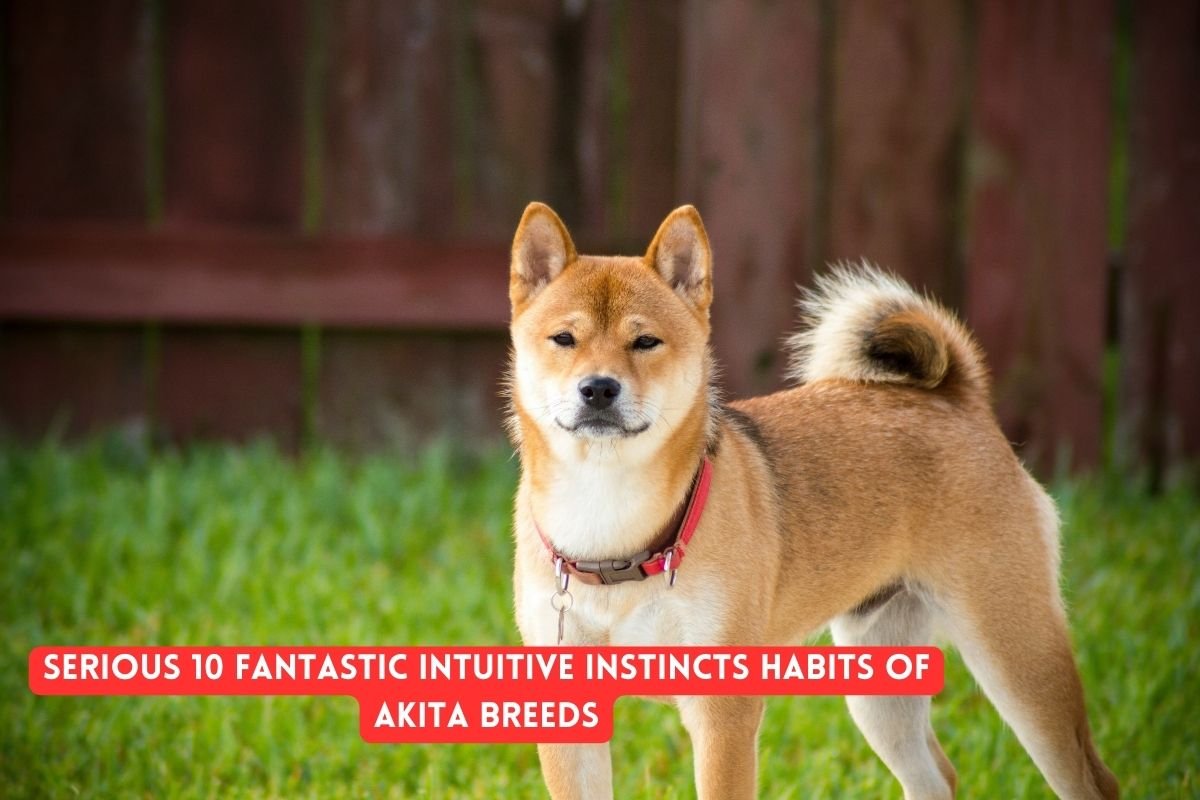Akita dogs are renowned for their loyalty, intelligence, and distinctive appearance. Originating from Japan, these majestic creatures have captivated the hearts of dog lovers worldwide. Beyond their physical beauty, Akita breeds possess remarkable intuitive instincts and habits that set them apart. Here, we explore ten of these fantastic traits that make Akita breeds truly special. Akitas have a strong sense of ownership over their belongings. They are not possessive in an aggressive sense but take pride in their possessions and may become upset if others encroach on their territory.
Protective Nature
Akita breeds are inherently protective of their families. They possess a strong sense of loyalty and will go to great lengths to safeguard their loved ones, making them excellent watchdogs.
Independent Thinkers
Known for their independent nature, Akita breeds exhibit a unique ability to think for themselves. While they are incredibly devoted to their owners, they also have a strong sense of self-reliance.
Discerning Judgment
Akitas are known for their discerning judgment and keen intuition. They can accurately assess situations and people, making them excellent judges of character.
Instinctual Guarding
With roots as hunting and guarding dogs, Akitas have a natural instinct for protection. They are vigilant and will instinctively guard their territory against potential threats.
Reserved Demeanor
While Akitas are affectionate with their families, they can be reserved around strangers. This reserved demeanor is not to be mistaken for aggression but rather a cautious approach to unfamiliar situations.
Cleanliness
Akitas are famously clean dogs with a cat-like grooming habit. They meticulously groom themselves, keeping their coats immaculate.
Strong Bonds
Once they form a bond with their owners, Akitas are incredibly loyal and devoted companions. They thrive on affection and enjoy spending quality time with their loved ones.
Sense of Ownership
Akitas have a strong sense of ownership over their belongings. They are not possessive in an aggressive sense but take pride in their possessions and may become upset if others encroach on their territory.
Adaptability
Despite their strong-willed nature, Akitas are surprisingly adaptable dogs. With proper training and socialization, they can thrive in various environments, from urban apartments to rural settings.
Protective of Children
Akitas are known for their gentle and patient demeanor with children. They often exhibit a nurturing instinct around youngsters, making them excellent family pets. Akitas have a strong sense of ownership over their belongings. They are not possessive in an aggressive sense but take pride in their possessions and may become upset if others encroach on their territory.
In conclusion, the intuitive instincts and habits of Akita breeds make them truly exceptional companions. From their protective nature to their discerning judgment, Akitas possess a unique set of traits that endear them to dog enthusiasts around the world.
FAQs
Are Akitas good with other pets?
Akitas can coexist peacefully with other pets if properly socialized from a young age. However, their strong prey drive may pose a challenge with smaller animals.
Do Akitas require a lot of exercise?
While Akitas benefit from regular exercise, they are not overly high-energy dogs. Moderate daily exercise, such as walks and playtime, is typically sufficient to keep them healthy and happy.
Are Akitas suitable for first-time dog owners?
Akitas are best suited for experienced dog owners who understand their unique needs and characteristics. Novice owners may find their independent nature challenging to manage without proper training.
Do Akitas shed a lot?
Yes, Akitas are moderate to heavy shedders, especially during shedding seasons. Regular grooming, including brushing their thick double coat, can help minimize shedding.
Are Akitas prone to health issues?
Like all breeds, Akitas may be prone to certain health issues, including hip dysplasia and autoimmune conditions. Responsible breeding practices and regular veterinary care can help mitigate these risks.
